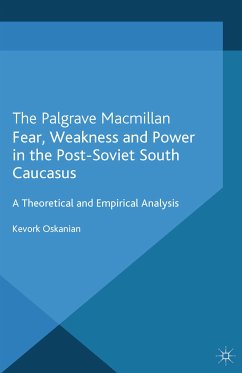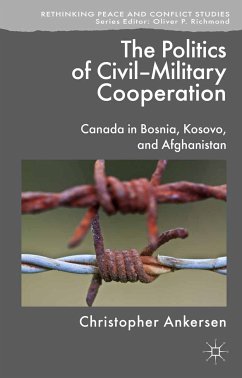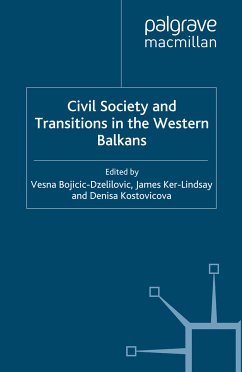Dieser Download kann aus rechtlichen Gründen nur mit Rechnungsadresse in A, B, BG, CY, CZ, D, DK, EW, E, FIN, F, GR, HR, H, IRL, I, LT, L, LR, M, NL, PL, P, R, S, SLO, SK ausgeliefert werden.
"This conceptually sophisticated study breaks new ground in using Regional Security Complex Theory to unravel the "Gordian knot" of relations within the South Caucasus. It deepens our understanding of the regional dimension in international relations theory, but also uncovers the deeper pattern of security interactions within a region long known for its complexity and instability. The book will therefore prove valuable for scholars and students of post-Soviet and wider regionalstudies, as well as for the theoretically minded wishing to learn more about a particularly fascinating part of the world." - Roy Allison, University of Oxford, UK
"The South Caucasus is a fractious territory composed of fragmented states. This unique book describes it as a 'Regional Security Complex', exploring the concerns of its main actors with a strong sense of balance and precision. It applies the theoretical foundations of a regional approach to the conflicts in the South Caucasus, touching new ground in its thorough historical investigation of its patterns of amity and enmity. The book's rigorous conceptual framework allows for an insightful delineation of possible future scenarios, featuring, for instance, Armenia's rivalry with Azerbaijan, the impact of Western values in shaping Georgia's political identity, and the emergence of a more stable security regime."- Bruno Coppieters, Vrije Universiteit Brussel, Belgium
"This book is a major contribution to the understanding of the international relations of the Southern Caucasus. Most literature on the subject is largely descriptive and historical. Oskanian makes a major contribution by embedding a rich empirical analysis into a clear conceptual and theoretical frame. In so doing, he also contributes to theoretical development by suggesting an appropriate modification of Regional Security Complex Theory." - Neil MacFarlane, University of Oxford, UK









